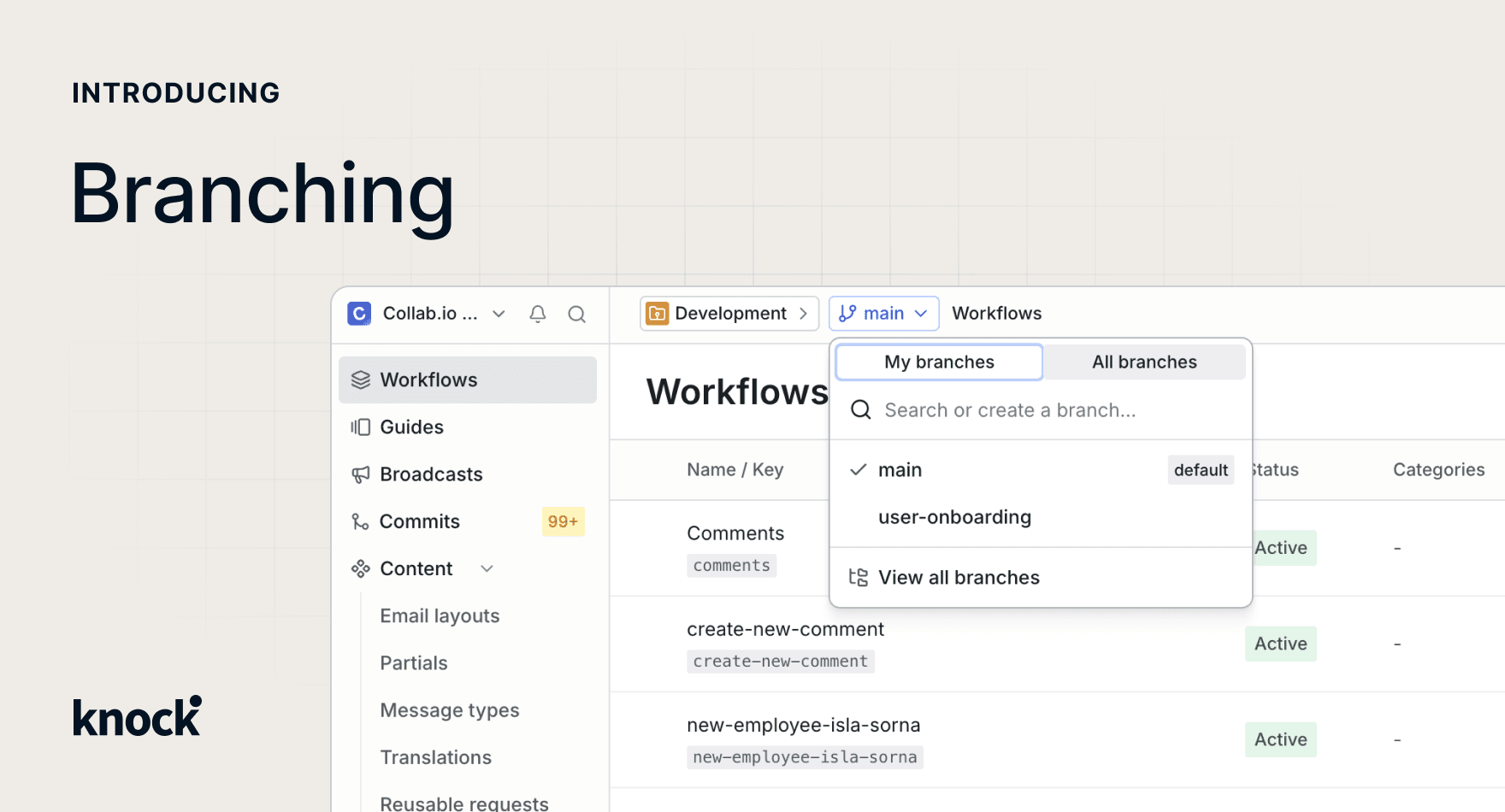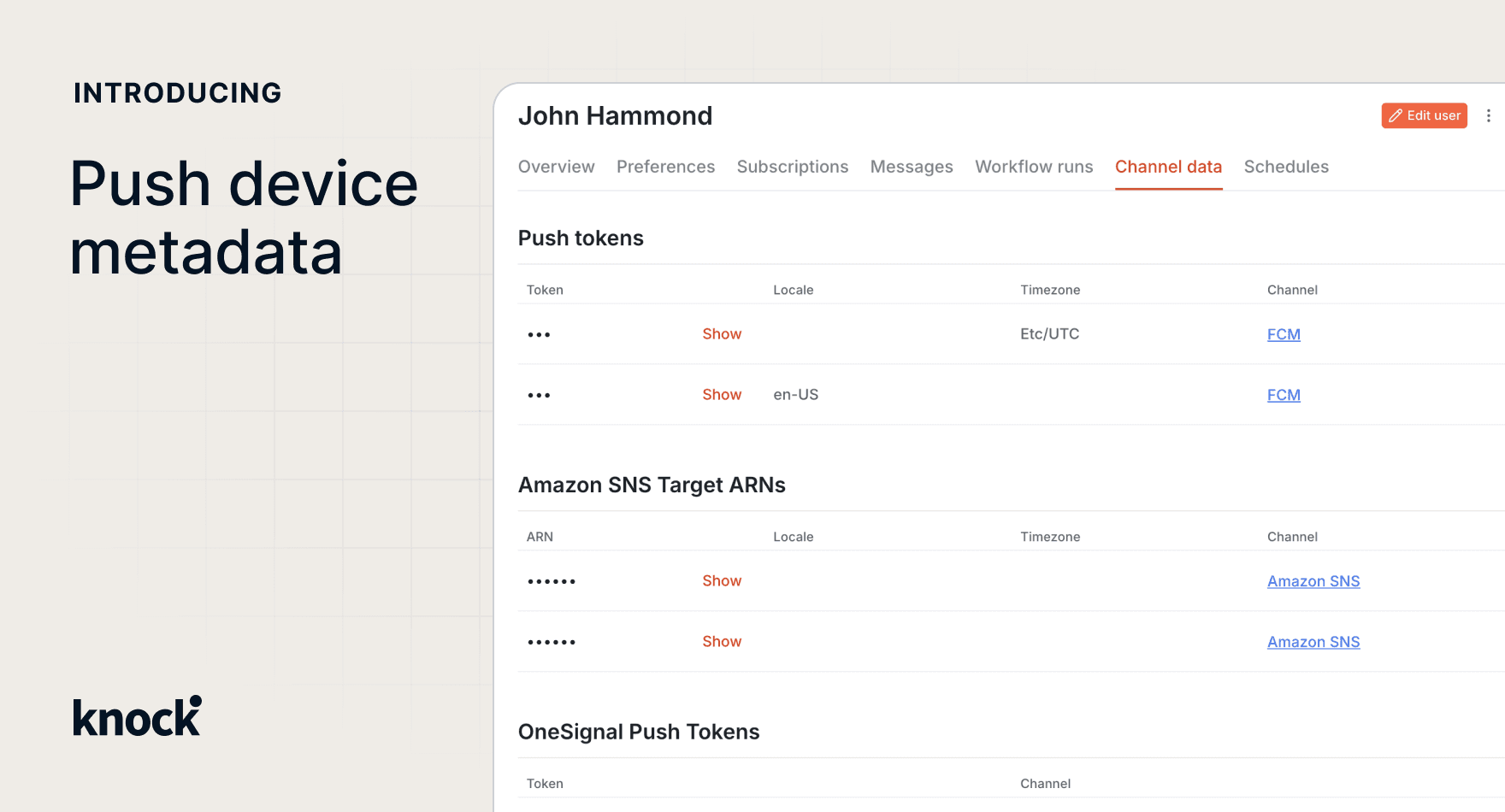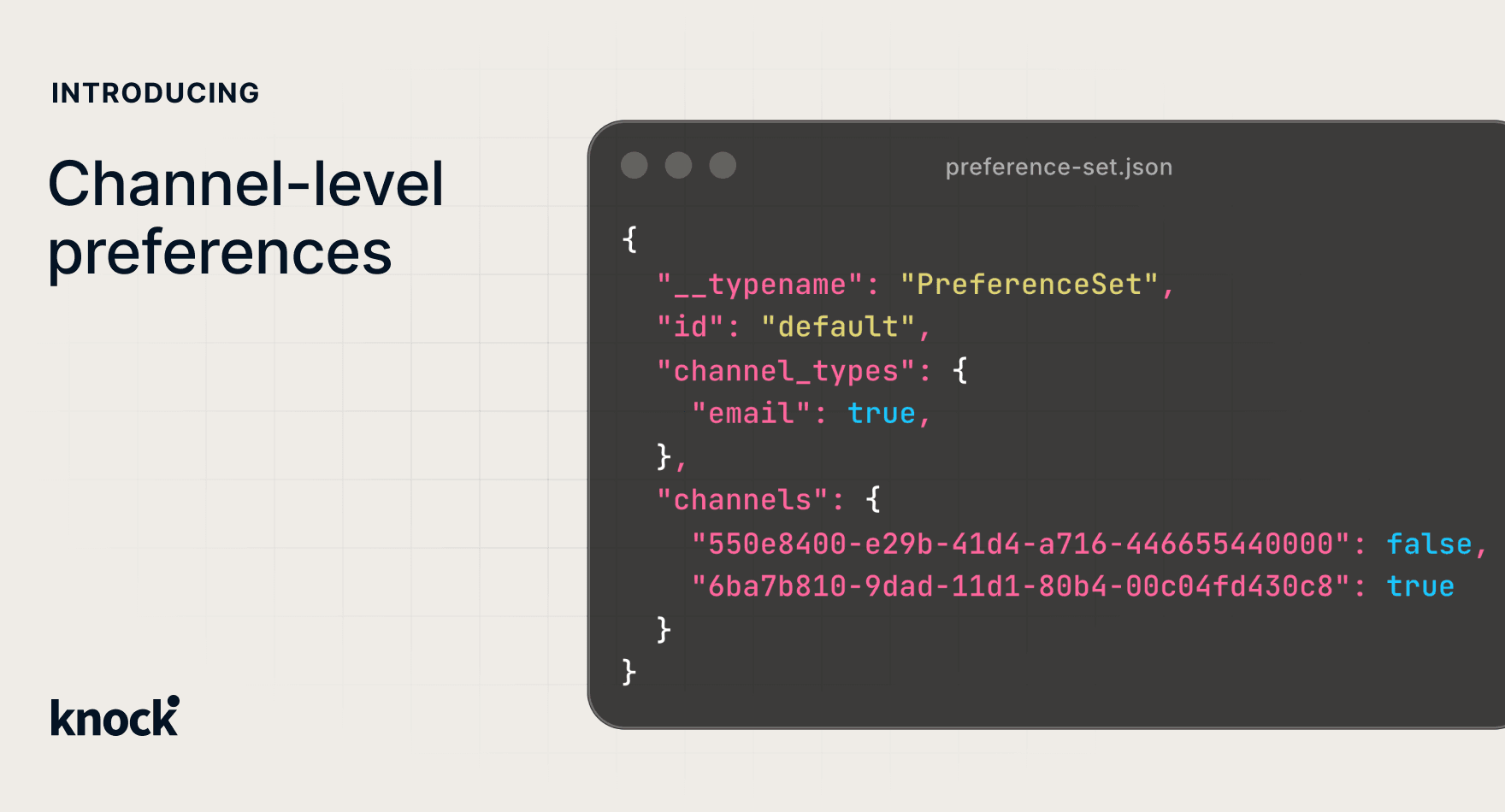Since we launched our CLI back in May 2023, teams have used it to work with their Knock-powered notifications in code and to programmatically manage their messaging infrastructure, making Knock an extension of their development workflow.
Today, we're thrilled to launch the 1.0 release of the CLI, with a whole host of new features and improvements to make working with Knock locally and in your CI/CD pipeline even easier.
With the 1.0 release of the CLI you can now:
- Login to the CLI using your Knock account, without needing a service token via
knock login - Initialize a central
knock.jsonfile for your project, and use that for all pull and push commands without specifying where your Knock directory is located - Work with all versioned resources in Knock (workflows, templates, guides, layouts, translations), commit and promote changes, list environments and channels, and much more
- Create new resources directly without going to the Knock dashboard, or from our new template repository via
knock workflow new
We've also included JSON schemas for all of your resource definitions, providing an editing assist and type hints in your IDE for you and your favorite coding agent like Cursor, Copilot, or Claude Code.
CLI 1.0 is also fully compatible with our new branching beta. Using the CLI you can create branches, push and pull changes on those branches, and merge changes from your branch back into main when complete.
If you're interested in trying out the 1.0 release of the CLI, you can get started by running npm install -g @knocklabs/cli or brew install knocklabs/tap/knock. You can also read the documentation to get started.










